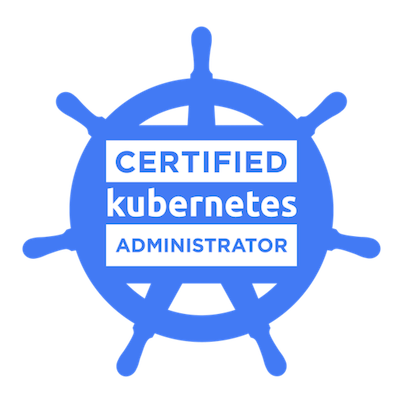

This four-day instructor-led class is designed to help IT professionals prepare for the Certified Kubernetes Administrator (CKA) exam.
This Track Includes:
Kubernetes Administration (LFS458)
Kubernetes Administration (LFS458)
Duration
4 Days
Description
This course covers the core concepts typically used to build and administer a Kubernetes cluster in production, using vendor-independent tools. We build a cluster, determine network configuration, grow the cluster, deploy applications and configure the storage, security and other objects necessary for typical use. This course offers exposure to the many skills necessary to administer Kubernetes in a production environment and is excellent preparation for the Certified Kubernetes Administrator (CKA) exam.
Objectives
In this course you’ll learn how to install and configure a production-grade Kubernetes cluster, from network configuration to upgrades to making deployments available via services. Also handle the ongoing tasks necessary for Kubernetes administration.
Topics include:
- Installation of a multi-node Kubernetes cluster using kubeadm, and how to grow a cluster.
- Choosing and implementing cluster networking.
- Various methods of application lifecycle management, including scaling, updates and roll-backs.
- Configuring security both for the cluster as well as containers.
- Managing storage available to containers.
- Learn monitoring, logging and troubleshooting of containers and the cluster.
- Configure scheduling and affinity of container deployments.
- Use Helm and Charts to automate application deployment.
- Understand Federation for fault-tolerance and higher availability.
This course does not focus on one vendor’s tools. Most courses are vendor-locked. We use kubeadm to deploy the cluster and focus on tools that would work on anyone’s Kubernetes cluster.
Course Outline
1. Introduction
- Linux Foundation
- Linux Foundation Training
- Linux Foundation Certifications
- Linux Foundation Digital Badges
- Laboratory Exercises, Solutions and Resources
- Distribution Details
- Labs
2. Basics of Kubernetes
- Define Kubernetes
- Cluster Structure
- Adoption
- Project Governance and CNCF
- Labs
3. Installation and Configuration
- Getting Started With Kubernetes
- Minikube
- kubeadm
- More Installation Tools
- Labs
4. Kubernetes Architecture
- Kubernetes Architecture
- Networking
- Other Cluster Systems
- Labs
5. APIs and Access
- API Access
- Annotations
- Working with A Simple Pod
- kubectl and API
- Swagger and OpenAPI
- Labs
6. API Objects
- API Objects
- The v1 Group
- API Resources
- RBAC APIs
- Labs
7. Managing State With Deployments
- Deployment Overview
- Managing Deployment States
- Deployments and Replica Sets
- DaemonSets
- Labels
- Labs
8. Services
- Overview
- Accessing Services
- DNS
- Labs
9. Volumes and Dataervices
- Volumes Overview
- Volumes
- Persistent Volumes
- Rook
- Passing Data To Pods
- ConfigMaps
- Labs
10. Ingress
- Overview
- Ingress Controller
- Ingress Rules
- Service Mesh
- Labs
11. Scheduling
- Overview
- Scheduler Settings
- Policies
- Affinity Rules
- Taints and Tolerations
- Labs
12. Logging and Troubleshooting
- Overview
- Troubleshooting Flow
- Basic Start Sequence
- Monitoring
- Logging
- Troubleshooting Resources
- Labs
13. Custom Resource Definition
- Overview
- Custom Resource Definitions
- Aggregated APIs
- Labs
14. Helm
- Overview
- Helm
- Using Helm
- Labs
15. Security
- Overview
- Accessing the API
- Authentication and Authorization
- Admission Controller
- Pod Policies
- Network Policies
- Labs
16. High Availability
- Overview
- Stacked Database
- External Database
- Labs
17. Closing and Evaluation Survey
Audience
Experienced system administrators or network administrators
Prerequisties
Students should have an understanding of Linux administration skills, comfortable using the command line. Must be able to edit files using a command-line text editor.
Certification
Certified Kubernetes Administrator (CKA)
Below is a Course Schedule for this:
2024
| Jan | Feb | Mar | Apr | May | Jun |
|---|---|---|---|---|---|
| 22,23,24,25 | 19,20,21,22 | 19,20,21,22 | 23,24,25,26 | 28,29,30,31 | 25,26,27,28 |
| July | Aug | Sep | Oct | Nov | Dec |
|---|---|---|---|---|---|
| 9,10,11,12 | 13,14,15,16 | 17,18,19,20 | 15,16,17,18 | 12,13,14,15 | 10,11,12,13 |
Duration: 4 Days
Course Fee
| Course Fee | $3100.00 |
| SME (Company Sponsored) – All Singaporean and Permanent Resident Employee | $930.00 |
| Singapore Citizens aged 40 years old and above | $930.00 |
| Singapore Citizen and Permanent Resident aged 21 years old and above | $1550.00 |